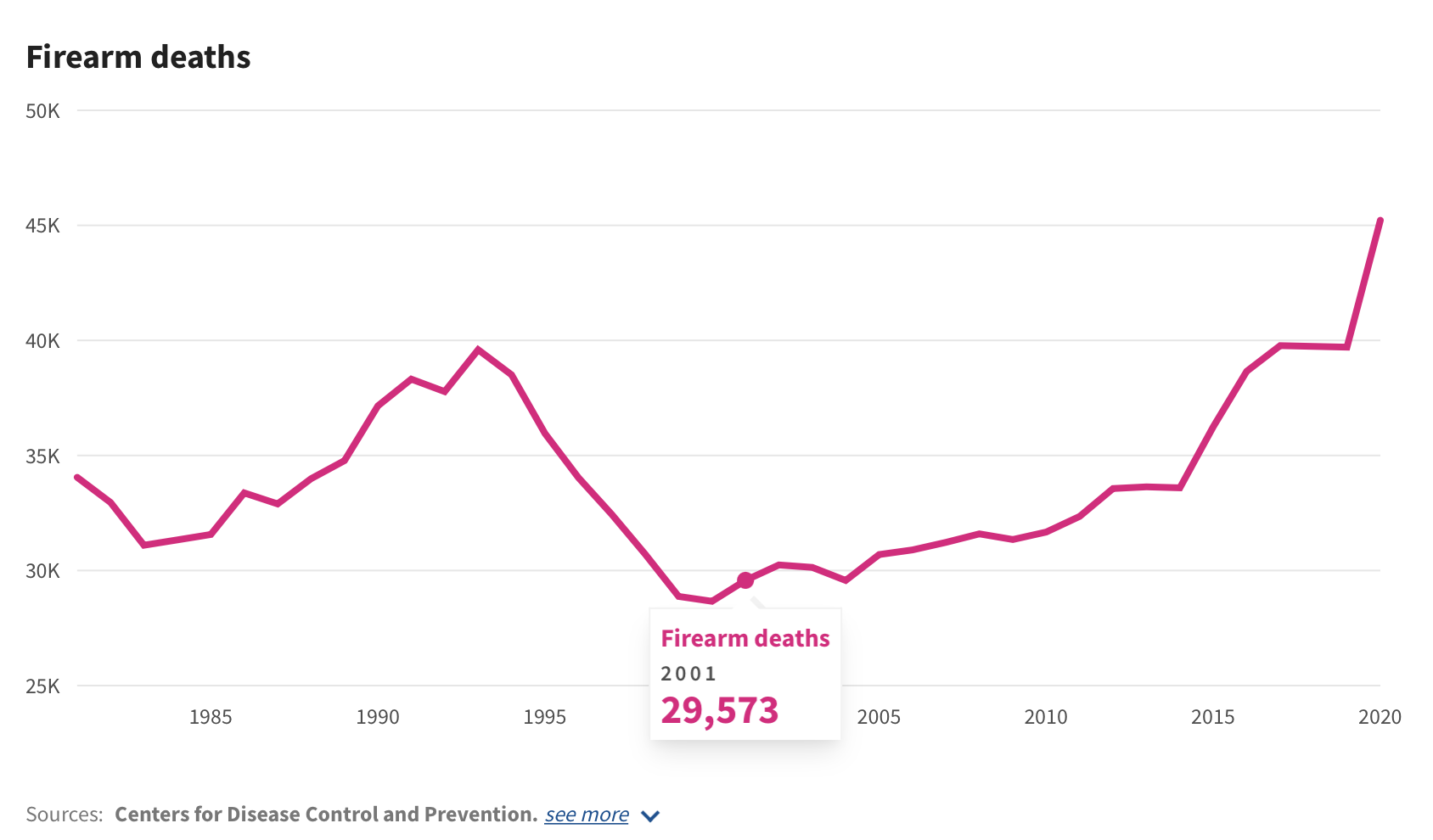U.S. Gun Violence by the Numbers
From USA Facts, horrifying numbers.
Firearm deaths include all deaths involving guns, such as homicide, suicide, and accidents. More people in the US die from suicide involving a firearm than homicides or accidents. There were a total of 45,222 firearm deaths in the US in 2020, an increase of 14% or 5,155 firearm deaths from 2019.

